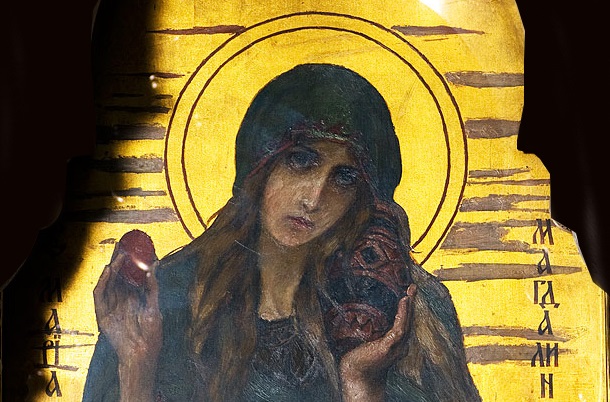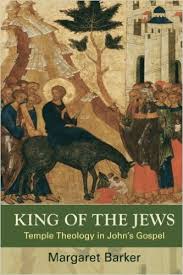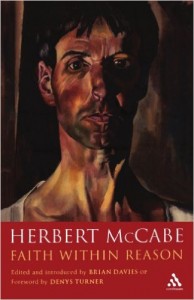
Mary Magdalene would not be a saint if, as Giles Fraser would have it, striving towards purity through self-denial is unimportant to the Gospel. Progressing away from sin with the help of grace is essential to Christianity. The Virgin Mary’s immaculate example is fundamental to spiritual progress. Therefore it runs with the grain of Christianity. Christianity without the Madonna is fallow. I’m grateful to Fr. Fraser, because, just like most postconciliar Catholics, Christology tends to overshadow Mariology in my own spiritual formation. Fraser’s failed Guardian piece on the Virgin Mary is an opportunity to refocus.
Giles Fraser is successful in popularizing theology to a post-Christian audience. He makes theology sound like an adventure to both complacent believers and unbelievers who think being religion is a coping mechanism. This talent is especially on display when he argued the Crucifixion and Resurrection are such startling realities that they should scare his liberal Anglican co-religionists away from church. Such a Pauline ability to bring out the unusual and offensive side of Christianity is very special talent Fraser shares with Terry Eagleton. I sincerely appreciate the Anglican padre’s grating of his late-modern First World audience.

However, his “The story of the virgin birth runs against the grain of Christianity” grated in the wrong way. It was almost cheesy:
The earliest polemic against Christianity focused on the circumstances of Jesus’s birth. “We have not been born of fornication,” says a hostile gathering to Jesus in John’s gospel [Ch. 8]. The implication being: we weren’t, but you were. In the second century, the Greek writer Celsus wrote the book On True Doctrine: A Discourse Against the Christians about how Jesus was the illegitimate low-birth offspring of a spinner called Mary and a Roman soldier called Panthera. The implication may also have been that she was raped. Various later rabbinic texts refer to him as Jesus ben Pandera. All of which was intended as an insult: Jesus was a bastard. Obviously the son of God couldn’t be a bastard. So, the argument goes, Jesus was not the son of God.
What he did there is like someone expecting to get an accurate account of the Yankees by only consulting Red Sox fans. That’s only the baseline story, alas, the interpretation only gets worse:
The idea that Jesus was born of “pure virgin” could well have been a reaction to these insults. That Mary’s womb was “spotless” was perhaps a cover story designed by Jesus’s supporters to explain a more God-like nature for his arrival. But here’s the problem. For what separates Christianity from other religious traditions is that – the birth narratives aside – Christianity deliberately refuses the familiar distinction between the pure and the impure. Jesus was born in a cowshed; from lepers to prostitutes, he deliberately courted the ritually unclean; and he spent most of his ministry tearing down barriers between pure and impure – not least, those of the Temple – that separated the “ungodly” from God himself.
Where to start?
First of all, there is no infancy narrative in John’s Gospel, therefore such an interpolation is unlikely.
Second, the argument between Jesus and his Jewish co-religionists in John 8 revolves around spiritual birth, not physical birth.
Third, the Gospel of John begins with the highest Christology of all the Gospels. It retells the Creation story of Genesis by presenting Jesus as the Divine Logos through whom all things came into being.
Finally, in contrast to the sinfulness of humanity, Jesus is said by John to be a pure light shining in the darkness of sin.
All of this, not only the Virgin Birth, rightly sounds offensive to contemporary ears. It seems that such a God wouldn’t want to have anything to do with humanity. The apparent paradox of John is that such a God is heavily involved with humanity. This only sounds odd because we tend to think of sinfulness as inherently human. However, the Gospel writers, and most Christians until very recently, thought otherwise: Sinfulness destroys and divides humanity; we only become ourselves by the grace of becoming Other Christs.

Herbert McCabe ties all of these threads together in the Faith Within Reason essay on the Immaculate Conception. Our Lady’s virginal purity is a foretaste of our future incorporation into the Body of God:
Not that our past life could be cancelled or forgotten, but that our past sinful deeds will come to be seen as God always saw them, through their forgiveness, as felices culpae–happy faults, as we call the sin of Adam, at the Easter Vigil, as themselves part of the whole mysterious story of grace by which God has brought us forgiven sinners to himself in Christ. It is this future glory of the human race that we celebrate during the season of Advent, when we look to the future coming of the Kingdom of God, as we thank God, make eucharist to God, for the coming Immaculate Conception and Assumption of our Virgin Mother Church, prefigured and promised in the Virgin Mother Mary.
The story of you, me, and Mary Magdalene wouldn’t exist without the Virgin Mary and her Son. It is a story about a proleptically paradisaical purity. Or, at least, there would be no alternative story to the slaughter bench of human history, to the Massacre of the Innocents. The story of the Holy Family is subversive and more worthy of Giles Fraser than the one he told.
The most popular Beatles song to date after the release of their entire catalog onto Spotify is the deeply Marian “Let It Be.”
I like to think this means that the seeds of Marian piety are deeply implanted even in our Post-Christian culture.












